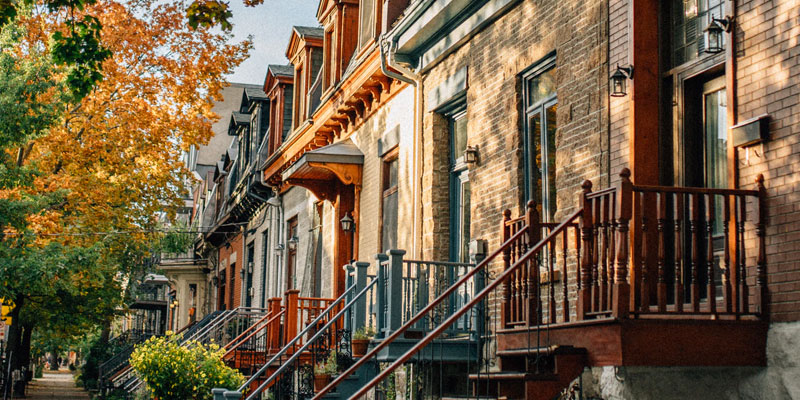It’s no secret that homebuying in Canada has become increasingly challenging, particularly for first-time homebuyers. House prices have outpaced income, and those who have had their heart set on a single-family, detached home, are often discovering it isn’t financially feasible. The good news is that there are other, more affordable options available to help you enter the housing market now.
One such example is a townhouse. There are freehold townhouses and condominium (condo) townhouses available – each offering unique features and benefits, so you’ll need to consider which type is right for you before moving forward.
The main difference lies with ownership. With a freehold townhouse, you own the home and its land. With a condo townhouse, you own the interior of the home only. Its land and surrounding areas are collectively owned by the group of condo unit holders and are managed by a condo corporation.
Freehold
A freehold townhouse is similar to a detached home in that you own the physical house and the property where it’s situated. You’re, therefore, responsible for all improvements, repairs and maintenance – inside and out.
Freehold townhouses are typically attached to other houses, on one side or both. Despite being physically attached, you still have the freedom to make your house your own. You can renovate the home as you see fit without adhering to guidelines or seeking permission and you’re also responsible for your own snow shovelling, grass cutting and any landscaping you wish to complete. Something to keep in mind is that you have no control over how your neighbours care for and maintain their property, which may not be up to your standards.
A freehold townhouse doesn’t carry monthly maintenance fees, which means that if something goes wrong, or you encounter a significant issue such as a leaky roof, you’re responsible for the repairs and associated costs. The flip side, of course, is that in the absence of monthly fees, you can put any extra money aside to offset these costs should they arise.
In general, there’s more demand for a freehold townhouse than a condo townhouse, which means prices tend to be higher. Keep in mind, however, that they also appreciate in value at a faster pace than a condo, which is good for when you decide to sell.
Condo
A condo townhouse means that you own the individual unit you live in, but not the exterior. The outside of your unit and common areas are owned by the condominium residents collectively and are maintained through monthly maintenance fees, or condo fees. If you aren’t one to undertake snow shovelling or general upkeep such as lawn cutting and leaf raking, this is a great option for you. Your condo fees will also cover significant expenses such as replacing faulty windows or a damaged roof. Monthly fees from all residents are kept in a reserve fund and you’ll want to determine whether there’s a healthy amount of money in the fund prior to buying to help you assess whether the property is well run.
The cost of buying a condo townhouse is typically lower than a freehold, which makes it an attractive option. While housing prices have increased across the board, a condo is still a viable option for many would-be buyers. When looking at your budget, make sure you factor in the amount of your monthly condo fees and keep in mind that they’ll likely rise incrementally over the time you live in the house.
Condominiums are governed by a board of directors who work with the condo corporation to oversee its overall operation. Because you don’t own the exterior of your home, you’re not free to make any changes or improvements without permission from the corporation, and even then you’re limited in what you can do. If you want to replace your fence for example, you can’t simply do it yourself. The corporation would have to determine that all fences under their management would need to be repaired or replaced.
Some condo townhouses offer shared amenities such as pools and gyms, which you may not otherwise be able to afford. In addition, the communal areas and shared ownership offer a real sense of community living.
Whichever option you determine is best for you, townhouse living represents a great way to enter the housing market and a steppingstone towards building equity to purchase the home of your dreams down the road.
Have questions about buying a townhouse? Answers are a call or email away!
